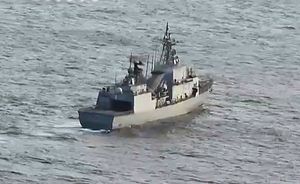Japan-South Korea ties are once again approaching a serious crossroads. Relations began to deteriorate significantly after the ruling on October 30 last year by the Supreme Court of Korea concerning the so-called conscripted factory workers. The ruling met with strong opposition from the Japanese government, rocking the basic structure supported by the Treaty on Basic Relations between Japan and the Republic of Korea concluded in 1965 and related agreements which have underpinned the bilateral relationship.
While this issue was significant in structural terms, it related solely to the continued negative legacy of the long period of colonial rule and the Second World War, so many observers did not initially expect it to have a direct impact on the practical relationship between the two countries.
However, that viewpoint has been overturned by subsequent developments. The turning point was the “radar incident” of December 20 in the waters between Japan and South Korea. The incident occurred between a South Korean naval destroyer that was rescuing a North Korean fishing boat in distress and a Japanese Maritime Self Defense Force patrol plane that had been on patrol. According to the Japanese government, the South Korean naval destroyer intimidated the Japanese patrol plane by locking its fire-control radar on the aircraft. The act of locking onto a target using fire-control radar, commonly referred to as “lock-on,” is strictly regulated as a dangerous act that can quickly lead to the use of actual weapons, potentially triggering a war.
South Korea denies the allegation made by Japan, refusing to acknowledge that the fire-control radar lock-on occurred and claiming that a Japanese patrol plane intimidated the South Korean naval destroyer by flying at an unnecessarily low altitude.
The truth remains unclear. What is important, however, is that the falling out between Japan and South Korea, which had been limited to a structural issue, has as a result of this incident now moved into the sphere of military security. Both Japan and South Korea are U.S. allies and have conducted a number of military exchanges. Those maintained between the Republic of Korea Navy and the Japanese Maritime Self-Defense Force, however, are said to be the closest, which is why the impact of this incident is enormous. The incident occurred in the Sea of Japan (a name itself disputed by Koreans, who prefer “East Sea”), where the island of Takeshima (South Korean name: Dokdo) is located, possession of which is disputed by the two countries. If this incident were to damage the harmonious management of the ocean between the two countries, its impact could easily extend to territorial disputes and conflict over the management of the ocean in the surrounding area.
The situation could also potentially lead to more serious problems. Amid the continuing tensions between the navies of Japan and South Korea, each side fueled by national pride, neither government has moved decisively to resolve the issue. This reflects the deep distrust between the two countries. Normally, such an incident would be settled by exchanging information possessed by the navy of each country at the practical level in order to establish the facts. However, the reason why the two countries are unable to take this step lies in a mutual distrust concerning the management of information, and in the belief that if information were to leak to the other side, the foundation of their own security would be lost.
If that is the case, one thing can be gleaned from this incident: The days when Japan and South Korea enjoyed mutual trust, each believing the other to be a friendly power, are coming to an end. If the navies of the two countries had sufficient trust in one another, the South Korean vessel would not have regarded the approach of the Japanese patrol plane as “intimidation,” and the Japanese Maritime Self-Defense Force may not have considered the fire-control radar lock-on against it a serious threat. If the two countries enjoyed a relationship of complete trust, such problems could be readily resolved where they arise.
This state of affairs is a perfect example of how the spread of distrust between Japan and South Korea, which began with the issue of historical perception, undermines relations between the two countries. Are the friendly relations between Japan and South Korea that underpinned the makings of a trilateral alliance with America really coming to an end? If so, an even greater transformation of the political balance in Northeast Asia is at hand.
Kan Kimura is a professor at Kobe University.

































